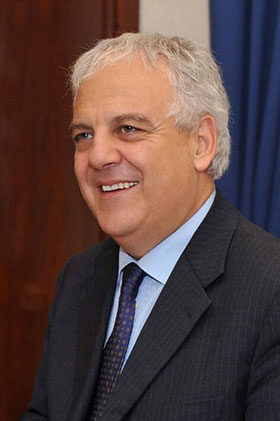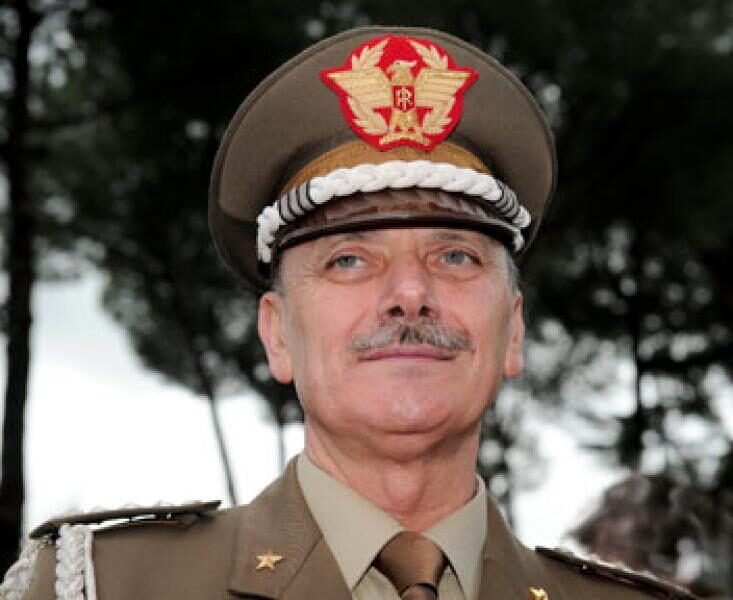THE AISE, SOVEREIGNTY AND INTERFERENCE

Alberto Manenti
The designation, in April 2014, of Alberto Manenti as Director of the AISE (External agency for information and security, previously SIMSI, i.e. The Italian secret services) has passed nearly unnoticed by the local media. The choice of finding a professional from within the agency itself, thus barring the way to the usual political wrangle, appeared normal, although innovative. It is for sure one of the few occurrences, if not the first, where the designation of the AISE director lands on a person who knows the structure that he is to command inside out. Such designation, however, was not totally inconsiderate of political parameters. Manenti was staunchly sponsored by the undersecretary in charge of Intelligence, Marco Minniti, whom had recommended Manenti’s candidacy to Enrico Letta (the then-PM of Italy). The designation was temporarily blocked after the ousting of Letta by now-PM of Italy Matteo Renzi. But there is more to this story: the firm advocacy for the promotion of Manenti on the part of two foreign Secret Services. The designation of Manenti was in fact favored by the pressures exercised on the Italian authorities by the Mossad and CIA. If, on the one hand, it is qualifying to be highly considered by foreign Intelligence agencies, one may wonder if – in a world like that of Intelligence services where there exist no friendships but only interests – such designation could be the fruit of another country’s interests. Indeed, to reduce room for national sovereignty in such a particularly delicate sector as this produces a very dangerous antecedent. The case of Alberto Manenti is emblematic of how it is possible to climb the corporate ladder within an Intelligence apparatus by use of not only local good words, but foreign ones as well.
A young captain
A young captain Manenti joins the Intelligence services in the 80’s not as an operative, but as an administrative officer; someone who prepares payslips and keeps the books. Yet this job does not satisfy him. Rather, he feels that his talent is squandered on the books. Or perhaps someone didn’t want him in administration anymore. Whatever the case, Manenti begins to seek a new chair more fitting with his aspirations and knocks at the doors of those that could help him find one, including the bodyguards of Admiral Fulvio Martini, the then-Director of SISMI. As we all know, fortune favors the bold. Around that same time the Intelligence service is forming the 8th Division, dedicated to the activity of counter-proliferation. It is a new, expanding, sector, headed by an officer of stature such as the Admiral Giuseppe Grignolo, someone who was surely not after technical assistance but rather unskilled labor. Manenti is the perfect choice for the Admiral: he has no specific experiences, he doesn’t know foreign languages much, he has no notable international precedents; in a word, he neither casts a heavy shadow on nor limits the uncontested hegemony of Admiral Grignolo himself.
The operative configuration of Manenti is thus forged; he goes from being an obscure administrator – at first he even keeps the books for the newborn division – to becoming a member of an operative structure. Manenti follows Admiral Grignolo, learns the trade and begins to knit his network in Italy and, mostly notably, abroad. He learns lesson number one: not all of the Intelligence agencies with which you come in touch are the same. Some have a greater specific weight because their opinions or counsel, if whispered in the ears of the SISMI Director pro tempore, increase the Director’s esteem for Manenti and, consequently, help him in his corporate climb.

Nicolo’ Pollari
The right man in the right place Alberto Manenti is very keen to please and immediately spots the subjects with which he should keep a preferential lane open. In this he is aided by the specificity of the work he carries out; work which is centered on the traffics of arms and technology around the world. Due to its geographical location, Italy is the launching pad or the transit place of traffics or direct shipments coming from the Middle East and North Africa; a very interesting sector both for the CIA and the Mossad. The relationship with these two Intelligence agencies is of an institutional nature, but Manenti adds to it the personal touch that makes the difference and that produces merit. The two Intelligence agencies immediately understand that they can count on his uncritical availability in every operation; that they can move around Italy without ever meeting with obstacles or excessive difficulties. This grants Manenti consideration and thankfulness. Manenti is also an attentive observer of the happenings internal to the Italian secret service. He always manages to know ahead of time who will be the new Director; who will rise or fall in the spoils system that accompanies every change at the top. He always lands his feet in the right side at the right time. When Grignolo leaves the agency and moves to the United States, where he will spend the tail-end of his career, Manenti has already consolidated his power and replaces Grignolo with ease at the head of the 8th Division, becoming his old boss’ walking stick in the USA. Then, when Nicolò Pollari moves in as a Director of the SISMI, Manenti immediately joins the ranks of his most trusted executors. It is Manenti who ‘pilots’ the false Nigergate files, thus achieving the dual goal of fulfilling his Director’s aspirations and scoring points with the Americans. His name appears in the Telekom Serbia scandal; he has frequent contacts with Finmeccanica (and thus appears in the reports of a number of prosecutors); he always plays on multiple tables, but always in the winning team. All this despite a few ‘sentimental’ adventures within the agency that probably should have given rise to doubts about the opportunity of his behavior.
In 2006, Pollari leaves the office of Director of SISMI, while his head of personnel remains behind to tidy up after his boss. The latter, in a clumsy attempt to consolidate the power of their financiers and correlated friends, gets the DIS (Department of Information Security) to approve a new regulation under the guise of a renewal of the management: those that have worked for the agency for 20 years, are aged 57 or above and have 40 qualifying years of national insurance contributions must leave the agency. It doesn’t matter if, in the meanwhile, the prefect Paolo Scarpis, 65 years of age and three months away from retirement, has just landed at the AISE; Scarpis doesn’t break the rule; he hasn’t worked for the agency for 20 years. But for Manenti the regulation becomes a big problem. He is over 57 years old, he has 40 qualifying years of national insurance contributions under his belt and has worked for the agency for over 20 years. Therefore, he should go. But, as soon as they receive the call, his foreign friends come to his aid. There follows a series of contacts and pressures, both throgh diplomatic and Intelligence channels, aimed at keeping Manenti in his seat. But what about the new regulation? There is no need to stick to regulations, every rule has its exception.

Adriano Santini
The rise It is not clear whether Manenti was re-militarized (the pro tempore Chief of Staff of the Defense, Claudio Graziano, is a companion of Manenti from the times of the Academy), but his career was restructured, he was suddenly made General and Vice Executive Director of the AISE. The goal is achieved. Both for Manenti and for the CIA and Mossad who could count on the gratitude of a person operating at the highest levels of Italian Intelligence. With his designation as Director of the AISE, Manenti’s ‘ad honorem’ career for the aims of the Americans and Israelis is now complete. According to sources within the agency, all of this happened – it must be said – after a period of “inadequate” management by General Adriano Santini at SISMI and Ambassador Giampiero Massolo at the DIS. The same inadequacy that persists in the new Prime Minister Matteo Renzi, who didn’t know the first thing about a world that he never belonged to, and who chose to be advised by others in his choices. This summing-up of inadequacies has allowed Manenti to widen his base of consensus and to play his professional game in a masterful way, beating the lobby of the Navy – who wanted the Admiral Filippo Maria Foffi at the helm of AISE – and that of the head of cabinet Carlo Magrassi, once sponsored by the Ministry of Defense Mario Mauro and who is now politically free-falling. In order to obtain the results he wanted, Manenti had to enact a complicated lobbying activity; proof of this is the fact that Santini left his seat in February and Manenti was designated two month later, in April.
The National Interest
Alberto Manenti undoubtedly has the right know-how to lead the AISE, an agency which he knows inside out. Some will say that, in Manenti’s case, continuity was rewarded. However, when faced with the latest Directors of the agency – and Manenti has been close to all of them – a more ‘discontinuous’ designation would have been more fitting.
The question that comes to mind, when thinking of preserving the Italian national sovereignty, is not solely of an ethical nature, but of a practical one as well: is it in the national interest of Italy to designate at the head of such a delicate structure a man whose privileged relationships could undermine those very same national interests? The same question could be asked in a different way: does Manenti work with the Americans or for the Americans? In the world of Intelligence there exist no ‘love matches’, just matches for interest; and seen as such ‘matches’ soon become of common domain, it is also legitimate to ask oneself whether the preferential connection that now exists between AISE, CIA and Mossad could jeopardize the relationships with other Intelligence agencies in other parts of the world.

